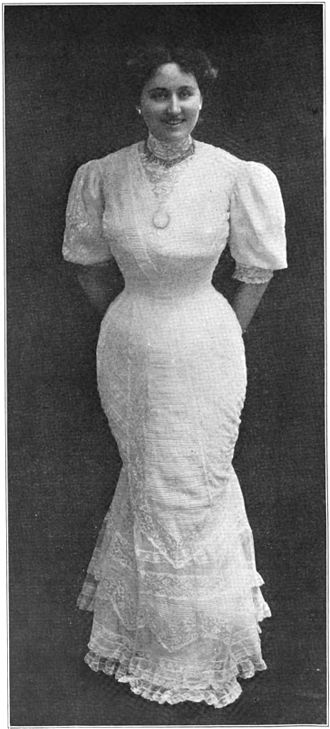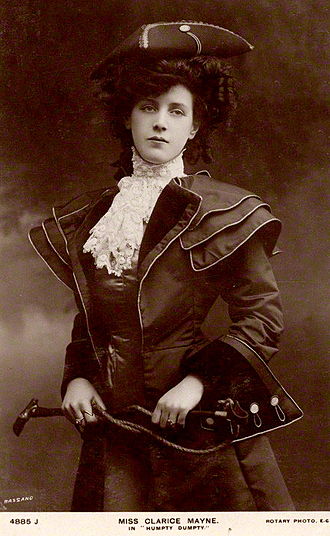Discover Your Roots
SIGN UPDiscover Your Roots
SIGN UPClarice is a captivating female name of English origin, meaning "Illustrious" and "Enlightened." It is an anglicization of the French name Clarisse, derived from the Latin and Italian name Clarissa. Originally associated with the nuns of the Roman Catholic Order of St. Clare, the name ultimately signifies "clear" and "bright." Additionally, it can also be considered a female form of the male name Clarence.Throughout history and in modern times, the name Clarice has been associated with notable individuals, including artists, writers, politicians, and performers. Fictionally, it has been used for compelling characters in literature, movies, and television shows, adding depth and intrigue to various narratives.Overall, the name Clarice carries a sense of prominence, enlightenment, and femininity, making it a meaningful choice for parents seeking a name with historical significance and a touch of sophistication for their daughter.

Clarice Taylor (September 20, 1917 – May 30, 2011) was an esteemed American stage, film, and television actress renowned for her versatile roles. Born in Buckingham County, Virginia, and raised in Harlem, New York, Taylor overcame the challenges faced by African-American actors in her time to make a lasting impact on the entertainment industry. She gained widespread recognition for her portrayal of Cousin Emma on Sanford and Son, Anna Huxtable on The Cosby Show, and Mrs. Brooks in Five on the Black Hand Side.Taylor’s career spanned across various platforms, from television to stage and film. Notable for her recurring role as Anna Huxtable on The Cosby Show, she earned an Emmy Award nomination in 1986. Taylor's contributions extended to the big screen, with appearances in films like Play Misty For Me, Such Good Friends, and Smoke, showcasing her remarkable acting prowess.With a strong commitment to the arts, Taylor was a founding member of the Negro Ensemble Company, where she honed her craft and contributed to the advancement of African-American representation in theater.Her legacy lives on through her impactful performances and significant contributions to the entertainment industry. Clarice Taylor's remarkable talent and dedication continue to inspire and resonate with audiences worldwide.

Clarice Tinsley, born on December 31, 1954, is a renowned American broadcast journalist with an illustrious career spanning several decades. Having moved to the Dallas–Fort Worth metroplex in November 1978, she became the anchor for the ten o'clock news at KDFW-TV, later adding the six o'clock news to her responsibilities in 1979. Notably, Tinsley holds the distinction of being the longest-serving news anchor in the Dallas/Fort Worth television market as of 2012. Prior to her tenure at KDFW, she spent three years at WITI TV 6 in Milwaukee, where she fulfilled various roles including hosting a monthly community affairs show, news reporting, and anchoring. Recognized for her exceptional work, Tinsley received numerous accolades, including a Peabody Award in 1984 and an Alfred I. duPont–Columbia University Award for investigative journalism in 1980 for her work on "A Call For Help," an investigative reporting series shedding light on issues with Dallas' 911 emergency system. In 2007, she was honored with the Director's Community Leadership Award from the FBI. Tinsley's influence extends beyond the realm of journalism, as she has made appearances as a news anchor or reporter in several Dallas-based television productions.

Clarice Blackburn (February 26, 1921 – August 5, 1995) was a celebrated American actress renowned for her captivating performances in various mediums. Born in San Francisco, California, she later pursued her passion for acting, earning a Bachelor's Degree in speech and drama at the Texas State College for Women and studying at HB Studio. Blackburn's professional journey began with notable stage appearances, including Broadway productions and off-Broadway performances. Notably, she achieved critical acclaim for her role in "American Gothic." Her extensive experience extended to soap operas, with significant roles in popular series such as "The Doctors," "Dark Shadows," "The Secret Storm," "Where the Heart Is," and others. Additionally, Blackburn showcased her talent in prime-time television and motion pictures. She also ventured into writing and contributed to the success of various shows, earning recognition and accolades. Sadly, Clarice Blackburn passed away on August 5, 1995, leaving behind a legacy of remarkable contributions to the entertainment industry.

Clara Etta Black, known as Clarice Vance or "The Southern Singer," was an American vaudeville sensation in the late 19th and early 20th centuries. Born in Ohio in 1870, Vance gained fame for her captivating performances, singing popular ragtime and dialect songs. She was also recognized as a "coon singer" and stood out for her impressive stage presence, being over 6 feet tall and able to project her voice over a 26-piece orchestra. Vance's career included successful stints in farce comedy, Broadway musicals, and extended engagements in London. Her most popular song, "Mariar," was co-written by her husband, and she recorded three versions of it. After her performing career, Vance's life took mysterious turns, and she eventually resided in San Francisco and Napa State Mental Hospital, where she passed away in 1961 at the age of 91. Despite her later years being shrouded in mystery, Clarice Vance's legacy lives on through her recordings and contributions to vaudeville entertainment.

Clarice Mayne (1886-1966) was an English music hall and variety theatre singer and performer, known for her captivating performances and popular songs. Born Clarice Mabel Dulley in London, she adopted the stage name Clarice Mayne and became famous for her rendition of "A Broken Doll," composed by her husband, James W. Tate, and lyricist Frank Clifford Harris. Throughout her career, Mayne showcased her talent in pantomimes and as a noted music hall performer, gaining recognition for her versatile roles, including the "principal girl" and "principal boy." Together with Tate, she formed the act "Clarice Mayne and That," enchanting audiences with their performances. Mayne's contributions extended to film as well, with appearances in movies such as "Nursie! Nursie!" (1916) and "Educated Evans" (1936). Her legacy lives on through her timeless performances and popularized hits, and she continues to be celebrated for her significant influence in the entertainment industry.
All images displayed on this page are sourced from Wikipedia or Wikimedia Commons.We use these images under their respective Creative Commons or public domain licenses. Wherever applicable, author attributions and license information are provided. If you believe an image is used incorrectly or outside its license terms, please contact us so that we can review and correct the issue.